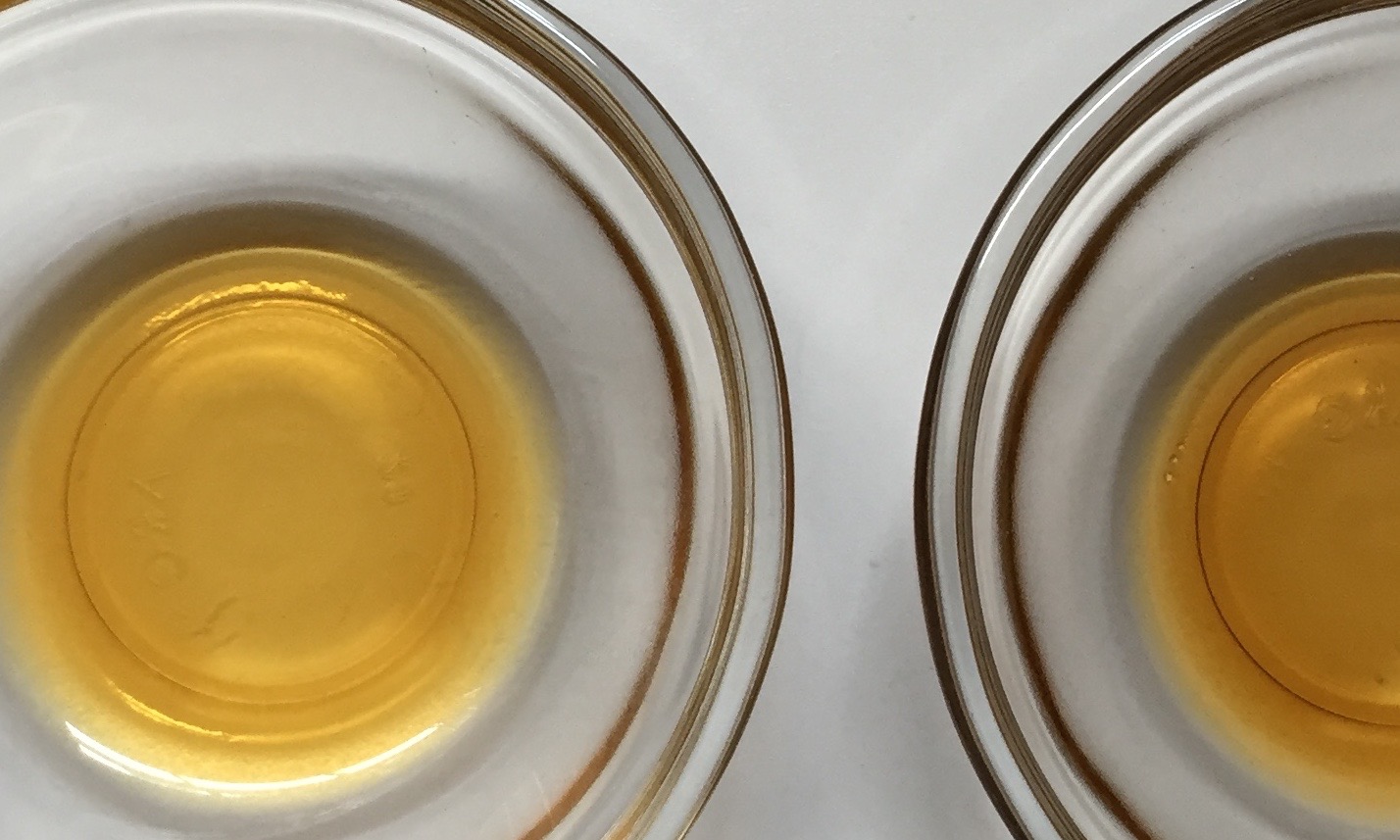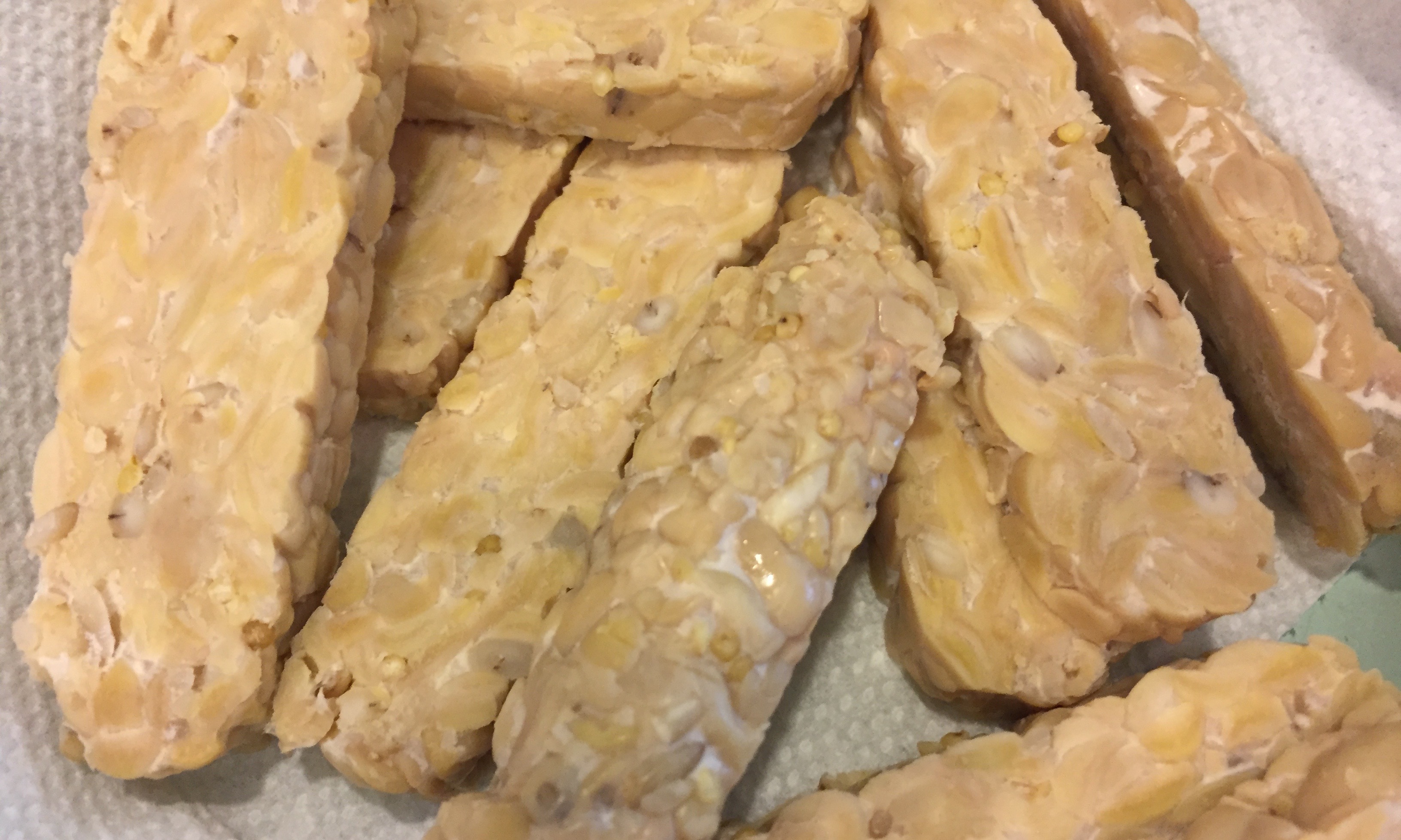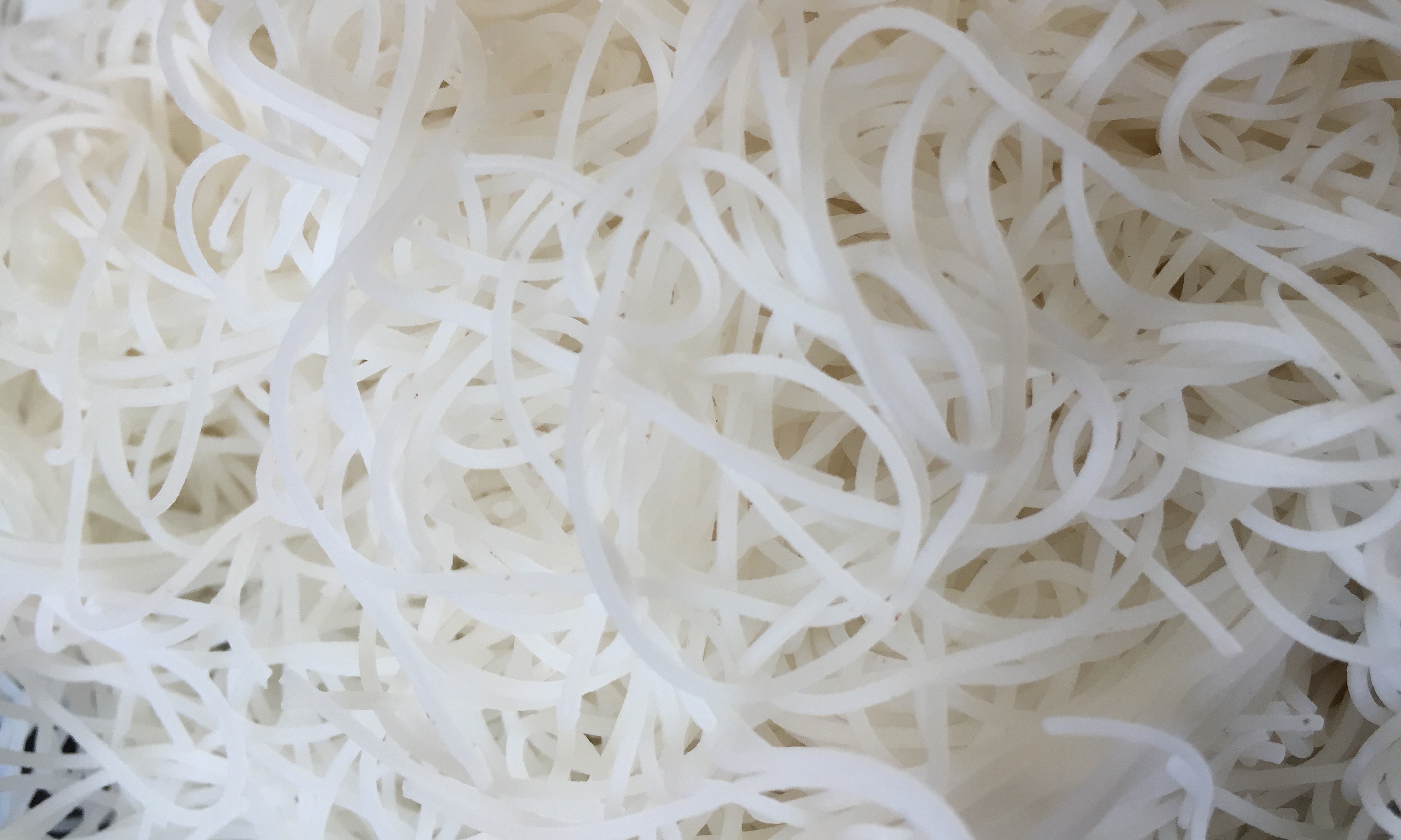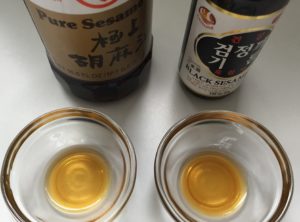
There’s regular sesame oil, and there is black sesame oil. Can you tell the difference if the bottles don’t give you the hint?
Two friends and I taste tested the two different oils and agreed there is a slight difference, the black sesame oil being a little more robust, with a slight roasted flavor. But when put in food and cooked, I think the difference is barely noticeable.
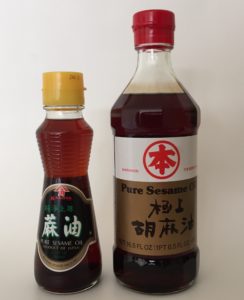
Used mostly for its essence, sesame oil is rarely used as an oil for frying or cooking. I do use it for a particular braised chicken, browning ginger in heated sesame oil before putting in the chicken. The Hakkas, a dialect group, have a similar, delicious braised chicken dish, made with sesame oil and rice wine, that is traditionally cooked for post-natal mothers.
Typically, sesame oil is used in combination with other condiments for marinating meat, to flavor sauces in cooking, and mixed in dipping sauces.
If a little adds fragrance and enhances a dish, don’t be tempted to put too much as it can be overwhelming. When used in flavoring a sauce, add a dash of sesame oil towards the end of cooking so that the fragrance is not lost in cooking.
Supposedly, black sesame oil is healthier for you because its from black sesame seeds. Who knows? In fact, I’m not sure if black sesame oil in Asian cuisine is from black sesame seed or from roasted sesame seed.
I’m satisfied with the quality of regular Japanese sesame oil and use it out of habit. I’ve not tested the various Chinese brands of black sesame oil (which comes in huge bottles). It’s sold in all Asian supermarkets.
Store in a dark place or keep in the refrigerator if it is not used often. Or buy a small bottle. Sesame oil can go rancid.
